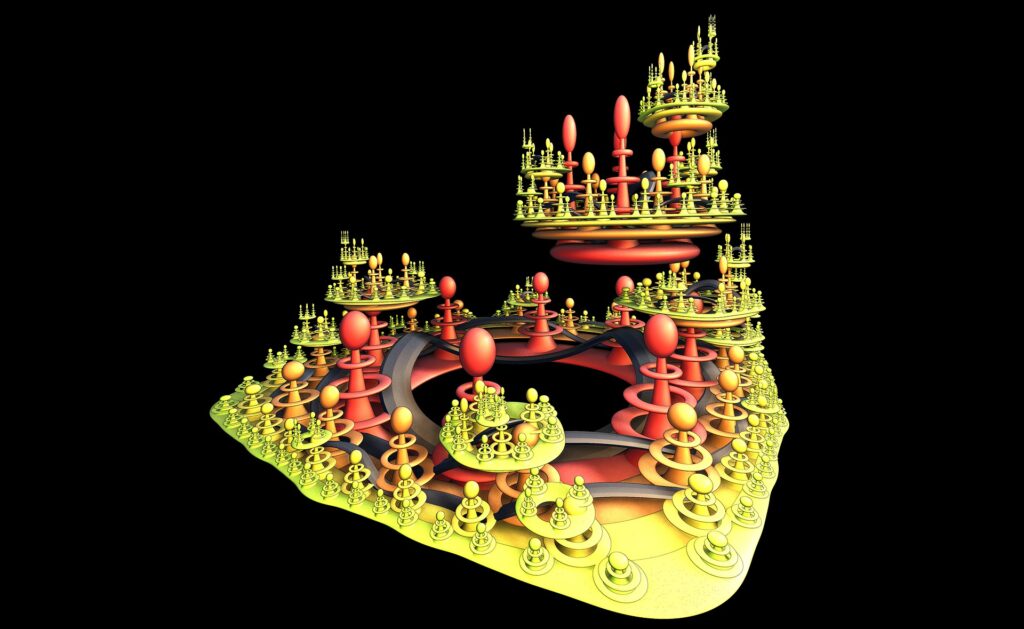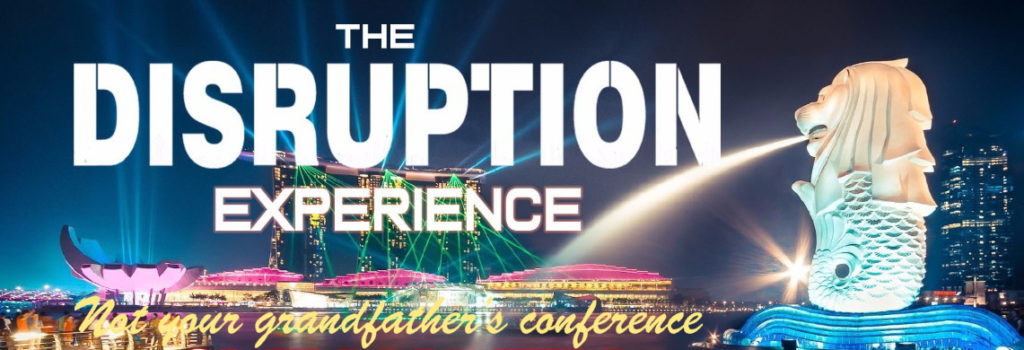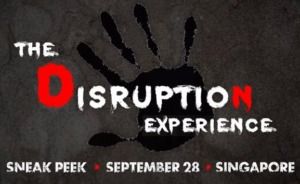Tag: Artificial Intelligence – Page 2

Designing for a Post-Job Future: The Impact of AI on Architecture
What might the end of work mean for the future of buildings? Firstly, a significant proportion of the built environment that has up to now been designed for people-centred economic activities —offices, shopping centers, banks, factories and schools—may over the next 10–20 years house 50% or less of the number of workers with far fewer physical customers. Furthermore, with the rise of artificial intelligence (AI), some organizations might run on algorithm alone with literally no human staff.
The future of jobs is not just about employment, but about larger societal shifts with dramatic impact on the use of space and resources. Indeed, AI is increasingly likely to provide a meta-level management layer — collating data from a variety from a range of sources to monitor and control every aspect of the built environment and the use of resources within it.
Today, at the dawn of the AI revolution, some of the latest technology coming at us involves mixed reality; advances in virtual reality (VR) and augmented reality (AR) are buzzing with new uses in places of work, education and various commercial settings. Teaching and training are exemplary uses — enabling dangerous, rare or just everyday situations to be simulated for trainees. Such simulations also provide the nexus point for humans to work alongside AI. For example, robot surgeons might do the cutting, while a human surgeon looks on remotely via video or a VR/AR interface. How might places be redesigned to accommodate this human-AI hybrid job future? The outcome could be spaces that embrace the blurring of physical and digital worlds, possibly with multi-sensory connection points between the two.
The coming wave of AI in business and society could impact the future design, use and management of buildings in dramatic ways. Key design features, including construction, security, monitoring and maintenance, could become coordinated by highly automated AI

20 Ways Business Meetings and Events Might Change in the Next Five Years
What are the key driving forces shaping the emerging future of business meetings, events, and conferences?
The next five years promise to bring fundamental changes across society – from the clients we serve, to the technology we use, and the needs and priorities of business – literally everything is “up for grabs”. At the same time, societal shifts, changing delegate and employee expectations, economic shifts, and financial uncertainty will all add to this mix – creating complexity, new opportunities, unexpected challenges, and a pressure to stay ahead of the game in spotting what’s next. Here we outline 20 developments that will become more prominent and potentially become major industry trends over the next five years.
- Conferences will have an increasingly interdisciplinary focus – In many sectors, participants will tire of hearing the same industry speakers and vendors saying roughly what they said last year! In the search for inspiration to maintain attendance levels, organizers will invite inspiring people from different fields, arts, science, music, business, education, or engineering to share their ideas with participants. The convergence, between people coming from different fields, will contribute to more creative solutions for the complex problems of the future of business.
- The Brexit Boom – Businesses the world over are struggling to understand what form the UK’s exit from the European Union might actually take – or if it will happen at all. Should it happen, the process might take five or ten years to complete fully. There is likely to be a high level of uncertainty and chaos. As the story continues to unfold there will be growing demand for events which help suppliers from and to the UK understand the latest picture and implications for their sector. For the meetings industry, the key here will be the ability to organise and promote relatively short, high quality, sector-specific events at speed.
- #metoo Charters — The meetings industry will take positive action in the wake of the harassment and assault cases made public across many sectors in 2017. Codes of conduct will appear covering behaviour at events, participants will be asked to sign these to confirm their adherence. Reporting of incidents will be made easier and more discreet, and offenders’ organizations will be notified immediately when such issues arise.
- Political Uncertainty – For the travellers to the US, uncertainty will continue over whether travel bans, or enhanced border vetting, will be in place for visitors from a range of countries. This may lead some organisers to locate global events in locations with no such restrictions.
- Smarter by Design – The of artificial intelligence (AI) in the sector will expand quite rapidly. From designing agendas, setting prices, and targeting potential attendees through to customer service chatbots, determining best fit locations, matchmaking people at events, and providing back-up content and fact checking of presentations, AI tools will become a feature across the entire industry value chain. In a very human business such as the events sector, it seems likely that AI will be used to free up time for value adding tasks rather than reduce headcounts.
- Business Model Experimentation – In a world where new charging models are proliferating, there will be a growing pressure on events to bring greater creativity to bear. From paying based on the perceive value and seat auctions through to pay per session and results based charging – the sector will be exploring a range of attendee payment ideas.
- Silent Conferences — Participants will be able to tune in to every parallel session via their personal devices and listen through their headphones from wherever they are in a venue. So, if the current session doesn’t appeal, you can simply switch to listen to or watch another parallel session another without leaving your seat.
- Real-Time Conference Agendas — Participants will be able to use meeting apps to schedule impromptu sessions held in any available space — coffee bars, lobbies, exhibition floors, even car parks. The speaker will talk into a microphone attached to their own smartphone and have the talk broadcast to those who tune in to that particular channel. Attendees will be able to view presentation slides and hear the speaker via their own device and headphones. So, no matter how noisy the background, the audience will be able to understand you perfectly clearly.
- Next Generation Meeting Scheduling — The intelligent assistants (IA) on our phone, or on the meeting app, will book appointments and meeting locations for us based on the types of people we say we want to meet. The IA will scan the attendee list, find the people who fit the criteria we’ve defined, and then contact their IA to request and set-up meetings.
- Stress Centres — concerns over our mental wellbeing are rising across society and workplace stress is reaching epidemic levels in some sectors. Events will start to include facilities where participants can talk discretely to counsellors and therapists about their issues.
- Thinking Hubs — Meeting venues will have interactive technology that will enable creative thinking and idea testing. Interactive technologies such as Virtual Reality (VR) or Augmented reality (AR) will allow participants to visualize data or ideas developed in a workshop session in a more tangible way. Participants will be able to test different ideas in VR/AR software and compare their possible outcomes to make better decisions.
- Integrated Events Apps — Users will not have to download individual APPs for each event, we will integrated systems emerge that present content for multiple events – these may even become standard features on many smartphones. App developers will create more cohesive systems that merge the information and presentations all the different events that sign up to use them. Users will have the opportunity to browse for the most interesting and useful information across a range of events and conferences – perhaps making micro-payments to access content for the events they didn’t attend.
- Digital Twins — Early adopters of technology could soon be able to send a digital stand-in to attend face-to-face conferences. The participant’s digital twin would be a software incarnation of the person embodied (or not) by a hologram or device that can see, hear, and observe the event in real time. The digital twin could engage with other participants in virtual space or on social media during the event, leading up to scheduled face to face meetings with interesting contacts at later points in time.
- Robot Realms – Events will make greater use of robots as mobile customer service assistants, kitchen staff, baristas, waiting staff, security guards, and porters. We’ll also see more robots featuring presentations and even delivering them. Within facilities we might see drones capturing videos of the sessions, transporting goods, and even moving people between sessions.
- Paradise Unplugged – Some meetings will be elevated to a luxury experience by adopting technology-free policies that demand unplugging, disconnecting, powering down, and “off-gridding” for all participants. Events will set a tone of intimacy and authenticity by discarding the free wi-fi and discouraging conference hashtags, for example. The venues would provide a facility at check in where participants can drop off their devices for the day and unplug, putting a total focus on the experience at hand.
- Cryptoculture — With the rising profile of digital currencies like Bitcoin, the next five years could require the meetings sector to adapt to customers interested in paying with cryptocurrencies. Being prepared to accept payments via Bitcoin and other digital currency would be an important step; there may also be new risks at hand when it comes to having anonymously paid fees, which is the nature of Bitcoin but unconventional in terms of event planning. There is likely to be a massive expansion of events about and related to cryptocurrencies as investment interests grow and the public becomes more and more curious about the potential of cryptocurrencies. A growing number of industry conferences will also look to add content about the potential impact and use of cryptocurrencies in their sector.
- Circular Economies and Zero Waste — The meetings and conference industry will come under growing pressure and take greater action to alleviate food, energy, and water waste. Scientific studies have shown that the earth’s ecosystems are weakening due to inefficiencies in current economic structures and distribution systems. So, for example, millions go hungry while fresh food is routinely discarded. Events and meetings that put into practice the principles of circular economies and zero waste, philosophies that encourage reuse and discourage overconsumption, might have a powerful role to play in the future where natural resources, even food, could be in short supply.
- The Replaced — As the automation of work and jobs progresses as an economic force, it is possible that there will be a rise in the number of technologically unemployed people. Events and meetings aimed at this audience might emerge as an opportunity for the meetings sector. Past employers, governments, other sponsors, and even the individuals themselves might pay for seminars, conferences, education sessions, and certification courses aimed at counselling, reskilling, and retraining the replaced. Indeed, these could become regular events in many local communities.
- Big Brother — Events that gather large numbers of participants could become attractive to proponents of the growing Internet of Things (IoT) and smart city movement. Attendees of large events might earn rewards, discounts, or actual money for agreeing to use tracking devices during business conventions or meetings. Attendee data would provide key insights to exhibiters, and non-participating marketers, for example those aiming at the business traveller. Marketers will place ever-greater value on knowing how participants spend their time, which stands they visit, what they look at on specific exhibits, who they talk to, and how long for. Of course, this might all seem very intrusive and, so it would need to be the choice of the individual attendee as to whether they were tracked or not. For event venues, large exhibition spaces might provide the perfect venue for IoT vendors to set up demonstrations and smart city simulations.
- Enhanced-Friendly – People are beginning to pursue a range of brain and body enhancements – chemical, genetic, physical, and electronic. From nootropic attention stimulating drugs and supplements through to body strengthening exoskeletons, and genetic modification, the sci-fi notion of “bodyhacking” is becoming a reality. Event planners will increasingly need to consider the needs of these enhanced visitors. As biohacking and bionics go from fringe to mainstream, how will meeting planners adapt to dealing with customers, colleagues, and vendors who are partially enhanced? Within the next five years, various forms of biotech implants could become more normalized, giving some individuals superhuman hearing, vision, or memory. As the sensory spectrum is expanded, will meetings be expected to accommodate the needs of the enhanced human?
The

Is artificial consciousness the solution to AI?
Artificial Intelligence (AI) is an emerging field of computer programming that is already changing the way we interact online and in real life, but the term ‘intelligence’ has been poorly defined. Rather than focusing on smarts, researchers should be looking at the implications and viability of artificial consciousness as that’s the real driver behind intelligent decisions.
Consciousness rather than intelligence should be the true measure of AI. At the moment, despite all our efforts, there’s none.
Significant advances have been made in the field of AI over the past decade, in particular with machine learning, but artificial intelligence itself remains elusive. Instead, what we have is artificial serfs—computers with the ability to trawl through billions of interactions and arrive at conclusions, exposing trends and providing recommendations, but they’re blind to any real intelligence. What’s needed is artificial awareness.


Promise in the Gloom? How Bleak Future Scenarios for Employment Might Save the Environment
How might future changes in the structure of business and the nature of work impact the environment?
While governments around the world are wrestling with the potential for massive on-rushing technological disruption of work and the jobs market, few are extending the telescope to explore what the knock-on impacts might be for the planet. Here we explore some dimensions of the issue.
Although replacing humans with robots has a dystopian flavor, what, if any positives are there from successive waves of artificial intelligence (AI) and other exponentially developing technologies displacing jobs ranging from banker to construction worker? Clearly, the number of people working and the implications for commuting, conduct of their role and their resulting income-related domestic lifestyle all have a direct bearing on their consumption of resources and emissions footprint. However, while everyone wants to know the impact of smart automation, the reality is that we are all clueless as to the outcome over the next twenty years, as this fourth industrial revolution has only just started.
There is a dramatic variation in views on the extent to

Fembots vs. HAL: Who are the people of AI?
From Watson to Sophia, who are the artificially intelligent robot personas of today, and what can they tell us about our future?
Siri. Alexa. Cortana. These familiar names are the modern-day Girl Fridays making everyone’s life easier. These virtual assistants powered by artificial intelligence (AI) bring to life the digital tools of the information age. One of the subtle strategies designers use to make it easier for us to integrate AI into our lives is “anthropomorphism” - the attribution of human-like traits to non-human objects. However, the rise of AI with distinct personalities, voices, and physical forms is not as benign as it might seem. As futurists who are interested in the impacts of technology on society, we wonder what role human-like technologies play in achieving human-centred futures.
For example, do anthropomorphized machines enable a future wherein humanity can thrive? Or, do human-like AIs foreshadow a darker prognosis, particularly in relation to gender roles and work? This article looks at a continuum of human-like personas that give a face to AI technology. We ask: what does it mean for our collective future that technology is increasingly human-like and gendered? And, what does it tell us about our capacity to create a very human future?
The Women of AI

Disruption Experience Nails It
The Disruption Experience this Friday in Singapore is a blockchain event with a difference. With apologies to the Buick commercial, this is not your grandfather’s conference…
I know a few things about blockchain conferences. I produced and hosted the first Bitcoin Event in New York. My organization develops cryptocurrency standards and practices. We help banks and governments create policy and services. And as public speaker for a standards organization, I have delivered keynote presentations at conferences and Expos in Dubai, Gujarat India, Montreal and Tampa, New York and Boston.

Many individuals don’t yet realize that both Bitcoin and the blockchain are as significant as the automobile, the transistor and the Internet. I was fortunate to grasp Bitcoin and the blockchain early in its history. It is never boring to help others understand the blockchain.
And so, I am an evangelist for both a radically improved monetary system and a transformative tool. During the past eight years, I have honed the skill of converting even the most profound skeptic. Give me 45 minutes in front of any audience—technical, skeptical or even without any prior knowledge—and I will win them over. It’s what I do.
An Atypical Conference Venue
As Bitcoin and altcoins begin the process of education, adoption and normalization, the big expos and conference events have begun to splinter and specialize. Today, most blockchain events market their venue to specific market sectors or interests:

 For me, Smart Contracts are one of the most exciting and potentially explosive opportunities. As a groupie and cheerleader, I am not alone. Catering to the Smart Contract community is rapidly becoming a big business. Until this week, I thought it was the conference venue that yielded the biggest thrills. That is, until I learned about the Disruption Experience…
For me, Smart Contracts are one of the most exciting and potentially explosive opportunities. As a groupie and cheerleader, I am not alone. Catering to the Smart Contract community is rapidly becoming a big business. Until this week, I thought it was the conference venue that yielded the biggest thrills. That is, until I learned about the Disruption Experience…
Few widely promoted, well-funded events address the 600 pound elephant in the room: What’s the real potential of blockchain trust, blockchain economy or blockchain AI? Take me beyond tokens and currency (please!). How can an international event help us to realize the potential of a radical new approach to accounting, trust and arbitration? Let’s stop arguing about Bitcoin, Ethereum or ICOs…
How can we unleash the gorilla—and grease—
a fundamental change that benefits mankind,
while providing leapfrog technologies for us?
—At least, that’s my spin on the potential of an unusually practical venue.
That question is slated to be answered on Friday at a big event in Singapore. And get this—It is modestly called a “Sneak Peak”. This is what I have been waiting for. The Disruption Experience premiers on September 28 at the V Hotel Lavender in Singapore. But don’t show up at the door. This event requires advance registration. (I do not offer a web link, because I hate being a conference huckster. If you plan to be in the area at the end of this week, then Google the event yourself).
What’s the big deal?
 The Disruption Experience team is populated by blockchain developers, educators and trainers who take issue with existing events that focus on monetization. The purity of intention was overrun by greed. And so, they set out to form an event with a more altruistic purpose: Build technology, relationships, mechanisms and educational tools that better mankind. The focus at this event and the conferences that follow is to educate, expose and innovate. The focus is squarely on disruptive technology.
The Disruption Experience team is populated by blockchain developers, educators and trainers who take issue with existing events that focus on monetization. The purity of intention was overrun by greed. And so, they set out to form an event with a more altruistic purpose: Build technology, relationships, mechanisms and educational tools that better mankind. The focus at this event and the conferences that follow is to educate, expose and innovate. The focus is squarely on disruptive technology.
With their team of blockchain innovators focused on benefits and progress, I suspect that attendees will get what we have been searching for: Education, investment opportunities, an edge on new technologies and job opportunities.
Cusp of a Breakout Year
As an analogy, consider the race to understand Bitcoin and consider the engines & motors.
 Bitcoin and the blockchain were introduced simultaneously in a 2009 whitepaper. It’s a bit like explaining the engine and the automobile together—for the very first time. One is a technology with a myriad of applications and the potential to that drives innovation. The other is an app. Sure, it’s useful and important, but it’s just an app.
Bitcoin and the blockchain were introduced simultaneously in a 2009 whitepaper. It’s a bit like explaining the engine and the automobile together—for the very first time. One is a technology with a myriad of applications and the potential to that drives innovation. The other is an app. Sure, it’s useful and important, but it’s just an app.
For 8 years, Bitcoin was a radical and contentious concept. Of course, there was the mystery of Satoshi and an effort to pinpoint his or her identity. And, a great debate raged about the legitimacy and value of decentralized, ethereal money. But, the interest was reflected primarily on the pages of Wired Magazine or at Geek-fests. Bitcoin was complex and costly to incorporate into everyday purchases and there were questions and gross misconceptions about hacking, regulation, taxes, criminal activity. The combined audience of adopters, academics, miners and geeks was limited.
That changed last year. With serious talk of exchange traded funds, a futures and derivatives market began to take shape. A critical operational bottleneck was addressed. Ultimately, 2017 was a breakout year for Bitcoin. You may not be using it today, but the smart money is betting that it will enhance your life tomorrow—at least behind the scenes.
 Likewise, 2019 is likely to be the breakout year for blockchain applications, careers, products and—perhaps most importantly—public awareness, understanding and appreciation. Just as motors and engines are not limited to automobiles, the blockchain has far more potential than serving as an engine for decentralized cash. It is too important to be just a footnote to disruptive economics. It will disrupt everything. And we are the beneficiaries.
Likewise, 2019 is likely to be the breakout year for blockchain applications, careers, products and—perhaps most importantly—public awareness, understanding and appreciation. Just as motors and engines are not limited to automobiles, the blockchain has far more potential than serving as an engine for decentralized cash. It is too important to be just a footnote to disruptive economics. It will disrupt everything. And we are the beneficiaries.
What is Interesting at The Disruption Experience?
The Friday event in Singapore covers many things. The presentations and tutorials that quicken my pulse relate to:
- AI
- Smart Contracts
- Serious insight into blockchain mechanics, applications, adoption, scalability and politics
- There’s even an exciting development in ICOs…
If you read my columns or follow my blog, then you know I am not keen on initial coin offerings (ICOs). That’s putting it mildly. They are almost all scams. But a rare exception is the Tempow ecosystem which encompasses three functional tokens. Stop by their exhibit and meet the officers of a sound economic mechanism that facilitates decentralized trading while overcoming the efficiency paradox.
What can I do at Disruption Experience?
The September 28 event is a preview for January’s Inaugural Event.
- Listen and learn what Disruption is all about
- Experience the first Virtual Reality Expo
- Get to know the speakers and founders of Disruption
- Hear about the Disruption Utility Token (DSRPT Token)
 Meet the Disruption Team
Meet the Disruption Team- See Disruption Expos
… and much, much more.
If you get to the big event, be sure to find the organizer and host, Coach Mark Davis. Tell him that I sent you. His passion and boundless enthusiasm for the blockchain and especially for transformative disruption is quite infectious.
Related reading:
Philip Raymond co-chairs CRYPSA, hosts the New York Bitcoin Event and is keynote speaker at Cryptocurrency Conferences. He sits on the New Money Systems board of Lifeboat Foundation and is a top Bitcoin writer at Quora. Book a presentation or consulting engagement.